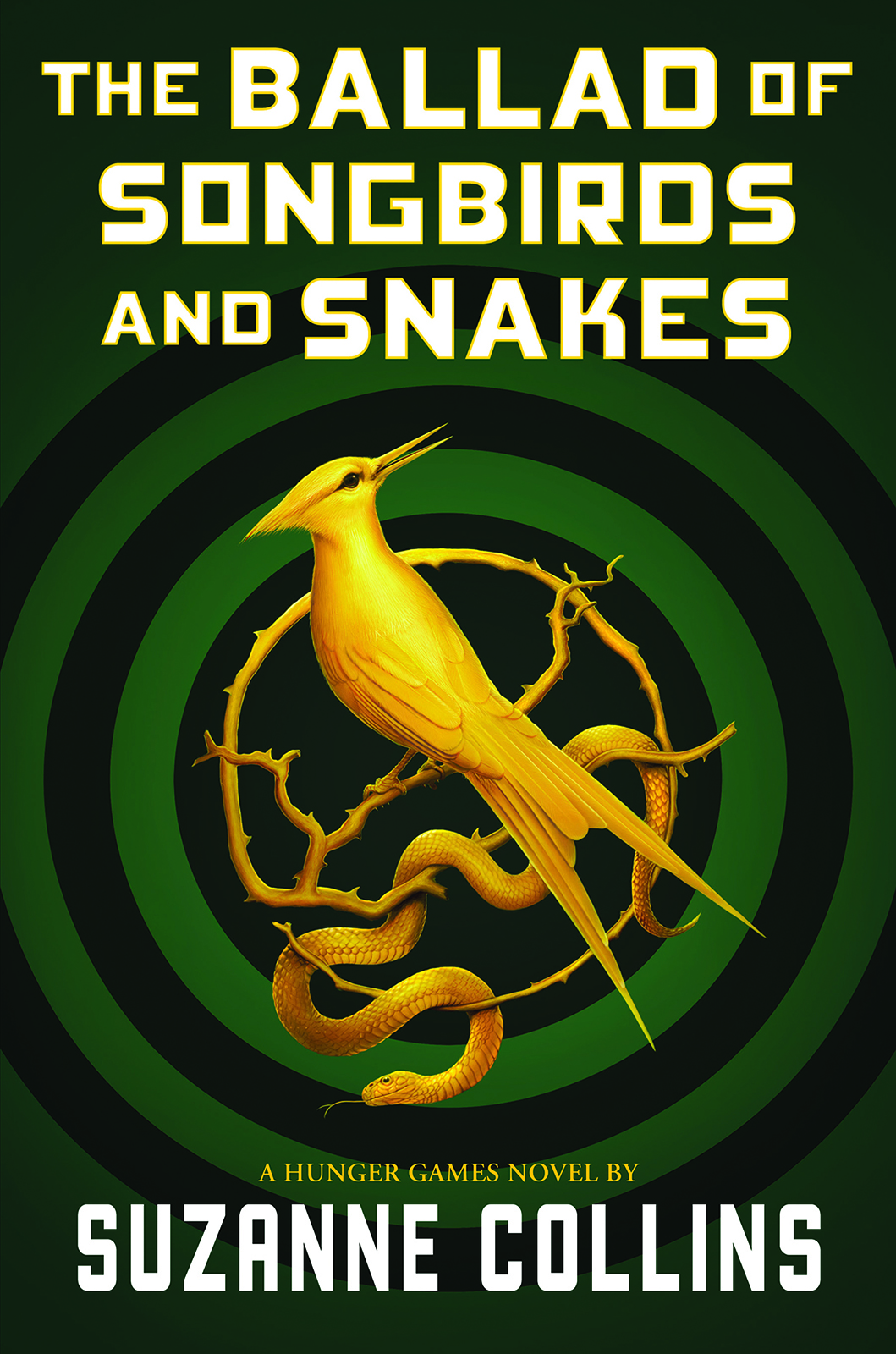Book review: ‘The Hunger Games’ prequel pays tribute to saga, leaving main character static

Suzanne Collins’ latest installment in “The Hunger Games” universe expands upon what has been established in the original series, including mockingjay symbolism and President Snow’s development as a young boy. However, his lack of morality leads to stagnancy of his character. (Courtesy of Scholastic Review)
"The Ballad of Songbirds and Snakes"
Suzanne Collins
By Eli Countryman
May 25, 2020 3:20 p.m.
Snow may land on top, but “The Ballad of Songbirds and Snakes” barely builds to a flurry.
The new prequel to “The Hunger Games” series takes place more than 60 years before the events of the original book but still lands on a familiar face. Eighteen-year-old Coriolanus Snow may ring a bell for many readers, as the characteristically ambitious boy is none other than future antagonist President Snow.
Now placing him in the role of protagonist, author Suzanne Collins finds herself walking a careful line: how to captivate readers with a character so vile, self-absorbed and unchanging. And she almost succeeds, too.
The plot follows Coriolanus as he is recruited to help the Capitol of Panem gain viewership for its 10th annual Hunger Games, which lacks many of the bells and whistles found in the 74th and 75th. As one of the first mentors, he is assigned to market District 12 tribute Lucy Gray Baird, garnering sympathy and increasing viewer investment in the games.
But following a protagonist solely bent on bettering his own place in society comes with the risk of leaving readers dissatisfied. From the book’s early pages, Collins allows for a view into the character’s world, and it’s one that revolves solely around himself. What starts out as an interesting thought project becomes laborious as Coriolanus presents different false versions of himself to everyone he interacts with just one goal in mind – control over his situation. His heightened level of grandeur in front of the cameras, for example, accentuates his need to be viewed as a member of the upper class.
[Related: Recent Rewinds: ‘The Hunger Games’ returns, giving readers revealing look at President Snow]
As a result, the book’s antagonists are often those most unlike not-yet-President Snow. Among such prestigious ranks are a kind Districts-turned-Capitol boy named Sejanus Plinth and his school dean. But Collins cleverly depicts Coriolanus as unable to grasp their motivations, as he attempts to justify what the characters stand to gain from their actions, fully misunderstanding concepts of selflessness and guilt.
Lucy Gray and Sejanus provide the likability, taking on similar tropes found in the earlier books. The girl, an idealistic version of what Katniss Everdeen could be if she enjoyed putting on performances, gifts the story with a sense of class that surely inspires the pompous games decades later. And Sejanus takes on a Peeta Mellark-esque role, showing moments of humanity as he attempts to better the living conditions of the tributes by offering them food or criticizing their living conditions leading up to the games.
While some characters show dynamic growth in the face of difficulties, Coriolanus never quite makes a change – though the plot seems to imply he did. He is introduced in a state of poverty and emotionally scarred from the rebellion, but his initial character is already far more villainous than those of his classmates. He’s the only brainwashed student to have memorized the Capitol’s official anthem, after all.
But as his actions become more cruel, no descent into madness is explored, no character arc given. He’s just predictably boring.
In place of growth, Collins accents the character with wishy-washy moments of morality early on, as if she herself hasn’t quite figured out how to make Coriolanus interesting. He often does noble things, like swear to help Lucy Gray win the games. And while this is originally done in good faith, the motivation soon becomes a cash prize. While the selfish reasoning makes sense given his personality, the initially selfless justification does not fit into his character, making such moments feel somewhat weak.
[Related: UCLA student authors book covering themes of mental health and identity]
Thankfully, “The Ballad of Songbirds and Snakes” finds a better grip in expanding upon the world established by the original trilogy. The abysmal shape of the initial Hunger Games, for one, offers a new take on the condition of Panem fresh off the heels of war. Coriolanus and his counterparts shape the beginnings of the pay-to-play reality show through interviews and participatory programs like sending food to the tributes.
Other satisfying callbacks include the origins of songs from the prior books and further elaboration on the symbolism behind the mockingjay – a bird that lends its name to the final book in the original trilogy.
And while much of President Snow’s mysterious intrigue is lost through the book’s revelations of his selfish character, the plot provides enough action to make the read worth it. Even in a less dramatized state, the Hunger Games explore many of humanity’s darker sides. Of course, most readers will know the protagonist is fated to eventually succeed into power, but beyond that, the storyline generates interest through its mostly unpredictable twists and turns.
With a character so unflinchingly stagnant though, Collins finds redemption in her decision not to glamorize or justify his villainy. The result: a sometimes-boring book about an always-captivating dystopia.


